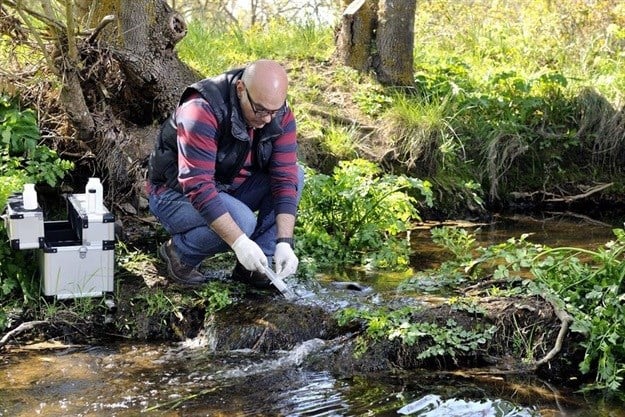Private prosecutions for environmental crimes has always been a thorny issue in South African environmental law. In the recent case of Uzani Environmental Advocacy CC v BP Southern Africa (Pty) Ltd, the Gauteng Division of the High Court in Pretoria found BP Southern Africa (BP) guilty of contravening the provisions of the National Environmental Management Act, 1998 (NEMA), which require fuel retailers to obtain environmental authorisations prior to commencing with any construction of filling stations that trigger certain listed activities.
In this case, BP was prosecuted by Uzani Environmental Advocacy CC (Uzani), a private environmental advocacy group. BP was charged with the unlawful commencement with 67 listed activities in respect of 21 filling stations without the requisite environmental authorisation. The High Court found BP guilty on most of the charges. Perhaps before we consider the arguments put forward in the court proceedings, it is worth looking at the applicable regulatory framework.
NEMA, the ‘new’ Environment Conservation Act
Although the charges brought were for the contravention of the Environment Conservation Act, 1989 (ECA), the ECA has effectively been replaced by NEMA. Section 24(2) of NEMA empowers the Minister of Environmental Affairs to publish a list of activities which impact or are detrimental to the environment, and which may not commence without an environmental authorisation.
Pursuant to these empowering provisions, the Minister published the Environmental Impact Assessment Regulations (EIA Regulations) together with Listing Notices. The EIA Regulations and listed activities have been amended over time with the most recent versions being published as GNR 982, 983, 984 and 985 of Government Gazette 38282 on 4 December 2014.
Depending on the listed activity triggered, the EIA Regulations provide for two types of processes to be followed in the application for an environmental authorisation, namely: a shorter basic assessment process; or a lengthier scoping and full environmental impact assessment process. Both processes require public participation to be undertaken by the applicant as well as specialist studies.
Of relevance to petroleum companies such as BP, listed activity 14 lists the development of facilities for the storage of “a dangerous good” – which includes petroleum products – in containers with a combined capacity of over 80 cubic metres but not exceeding 500 cubic metres as an activity which requires an environmental authorisation and that a basic assessment process be followed in the application for the authorisation. Furthermore, listed activity 4 of Listing Notice 2 lists the development of facilities for the storage of dangerous goods in containers with a combined capacity of over 500 cubic metres as an activity which requires an environmental authorisation and for which the lengthier scoping and EIA process must be undertaken.
Commencing with a listed activity without an environmental authorisation is an offence in terms of section 24F of NEMA and a person convicted of such offence is liable to a fine not exceeding R5 million or to imprisonment for a period not exceeding 10 years, or to both such fine and imprisonment.
However, section 24G of NEMA provides for a rectification application to be submitted by a person who commits an offence in terms of section 24F (i.e. a person who commences with a listed activity without an environmental authorisation). An applicant for a rectification application would essentially be liable to payment of an administrative fine which may not exceed R1 million. Many environmental law writers have pointed out the fact that a section 24G application may be construed to essentially be an admission of guilt. Although not expressly stated, this line of reasoning appears to be followed by the High Court in the BP case.
Private prosecution
In this case, Uzani sought to privately prosecute BP for its unlawful commencement with listed activities without the requisite environmental authorisations. Uzani relied on the private prosecution provisions in section 33 of NEMA, which allow any person acting in the public interest or in the interest of the protection of the environment to bring legal action against anyone who contravenes a provision or duty in environmental legislation which duty is concerned with the protection of the environment.
BP denied that Uzani was entitled to institute private prosecution proceedings against it and entered a plea of not guilty against the environmental law contravention charges. BP contended that Uzani was required to have consulted with the Director of Public Prosecution (DPP) prior to instituting the proceedings. BP also denied that the private prosecution was in the public interest or in the interest of protecting the environment. BP argued that only the National Prosecuting Authority could prosecute applicants who had submitted a section 24G rectification application.
During the trial, Uzani called an expert to present evidence on the environmental degradation and contamination which results from filling stations and how a rectification application in terms of section 24G of NEMA post-commencement with a listed activity is not as effective and is of a “qualitatively inferior” status to an environmental authorisation application made prior to commencement with the listed activity. This is primarily because refusing the section 24G application post commencement is not an option as this could lead to job losses.
The expert testified that only a small volume of fuel could pollute a large area of groundwater and that such pollution is effectively irreversible. This is particularly the case with underground fuel storage tanks.
In a judgment by Judge Spilg, the court held that the consultation with the public prosecutor prior to initiating private prosecution proceedings need not be an extensive process, done face-to-face or in order to reach consensus. To this extent, the court found that Uzani had sufficiently consulted with the DPP.
The court also found that Uzani was acting in the interest of the protection of the environment. This was despite BP’s submission that there was no evidence that filling stations pose a risk to the environment and that its sites were not located in ecologically sensitive environments. BP also made the point that it took precautions to ensure environmental protection and undertook environmental audits on its sites every three years.
Lastly, the court found that the submission of a rectification application under section 24G of NEMA and imposition of penalties on the applicant does not preclude such applicant from being prosecuted.
Cautionary tale
This judgment should serve as a caution to other petroleum companies who commence with listed activities without the requisite environmental authorisation. In addition to being required to submit a rectification application under section 24G and paying administrative penalties, the applicant may also be criminally prosecuted - especially by the often highly motivated and sometimes even financially capable environmental advocacy groups. Companies should therefore ensure that they obtain the necessary environmental authorisation prior to commencing with any listed activity under NEMA.














































